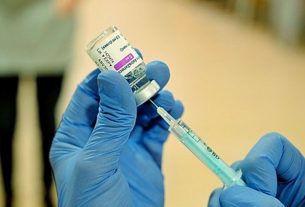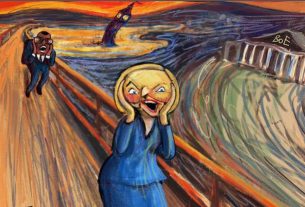Nicola Sturgeon is facing off a growing rebellion in the ranks of the SNP and has been accused of using “weasel words” to question the innocence of Alex Salmond, who was cleared of committing sexual offences in March last year.
Former deputy leader of the SNP, Jim Sillars has lodged a formal complaint that Sturgeon breached the ministerial code over comments made in a press briefing yesterday (Wednesday).
Sturgeon told reporters that her predecessor’s conduct towards women, rather than the conspiracy he has alleged, were the “root” of the claims against him and added that just because Salmond – who was acquitted of 13 alleged offences, including one attempted rape – had been cleared, “that doesn’t mean that the behaviour complained of didn’t happen.”
Sturgeon failed to uphold ‘highest standards’
Sillars – who was Salmond’s number two in the 1990s and is a long-standing critic of Sturgeon – said the first minister failed in her duty to uphold the “highest standards of behaviour” and that people watching would infer the jury was wrong based on Sturgeon’s “weasel words”.
In a letter to permanent secretary Leslie Evans, Sillars said: “I have been in public life for over 60 years, and in the course of it studied how heads of state and governments in the democracies have behaved in office.
“I cannot recall one single incident when the head of a government so egregiously questioned the verdict of a jury, or even thought it a proper and legitimate discharge of their duty to do so.”
Sturgeon hit back at her critics, telling MSPs in Holyrood: “Scrutiny of me is important, necessary and entirely legitimate.
“What is not legitimate is for someone to pursue a conspiracy theory or scorched-earth policy that threatens the reputation and integrity of Scotland’s independent justice institutions just because they happen to dislike the Government, and to sacrifice all that, if I may say so, on the altar of the ego of one man.”
Johnson acts to curb SNP’s threat to the union
With just months to go before the Holyrood elections, Boris Johnson has set up a new cabinet committee charged with preserving the union of England, Scotland, Wales and Northern Ireland.
The move follows the departure of two former heads of the Downing Street ‘union unit’ – Oliver Lewis who quit last week after just two weeks in the role, and Luke Graham who “was let go earlier this month”, reports the Guardian.
Fears are growing among unionists that Sturgeon’s SNP are on course for a commanding victory in May’s elections for the Scottish parliament.
Such is the extent of the perceived threat that the prime minister himself will chair the first meeting of the new union strategy committee next week, which will be attended by chancellor Rishi Sunak, Cabinet Office minister Michael Gove, Lord David Frost and the secretaries of state for Northern Ireland, Wales and Scotland.
It is reported that this committee will direct a union policy implementation committee – modelled on Brexit strategy and operations groups – to action the decisions made at the highest level.
Responding to the departures of two heads of the union unit and the setting up the new committee, the SNP’s deputy leader at Westminster, Kirsten Oswald said: “The entire shambolic episode is the perfect analogy for the Tory government’s undemocratic anti-independence stance – crumbling under the first sign of any pressure.
“The reality is that no amount of rebranding or merging can take away from the fact the Tories are in turmoil and their anti-independence campaign in disarray.”
Scotland’s lower excess deaths than England is boost for SNP
Meanwhile, data released has shown that Scotland has managed to keep deaths and infections of the coronavirus lower than England during the winter.
While October and November were poor months north of the border, Sturgeon’s willingness to impose and maintain restrictions to curb Covid-19 resulted in the peak reaching a lower level with Scotland recording a lower level of excess deaths since December.
The Financial Times reports the “relative effectiveness of policy in Scotland and England has political implications” with polling experts saying the perception that Sturgeon has managed the pandemic better than Johnson boosting support for Scottish independence and the SNP.




